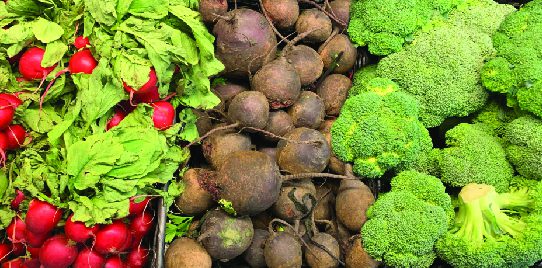What predicts and prevents source separation of household food waste? An application of the theory of planned behavior
The residential sector contributes about 40% of total food waste in the US. Households are a key force of waste generation, but they also have the capability to enable food waste solutions such as source reduction or composting. A new option for households to reduce food waste has recently been introduced: community composting!
Community composting refers to a service that collects food waste from the residence or accepts waste at drop-off locations and then manages the waste accordingly. Sounds like a perfect solution, right? Yes, but these programs depend on consumer participation and have structural barriers to household participation, making them difficult to sustain.
RECIPES PI Callie Babbitt and her colleagues wanted to understand the underlying structural and personal barriers that households face when deciding whether to source separate their food waste and how to overcome those barriers to motivate behavioral change. The research team used the theory of planned behavior to determine the factors and beliefs that influence individuals’ intention to separate food waste, implementing a survey in New York state as a case study.
This study’s findings confirmed previous studies’ results that individuals experience social pressure to engage in the act of separating food from the rest of their waste and that the intention to separate waste is linked with such social pressure – if your friends do it, you’re more likely to as well! The authors suggest that this confirmation should provide opportunities to target family relationships and household support to change behaviors.
The researchers found that beliefs about separating food waste may lead to negative outcomes – the ‘yuck factor’. Especially those who are unfamiliar with waste separation may be turned off of the idea of separation by odor, pests, or the mess. As one interviewee put it, “the odor was just too much,” suggesting that there may be a physical barrier to separation.
Those who were more familiar with activities like recycling were more likely to participate in food separating with recycling acting as a ‘gateway behavior’ into food waste separation. Participants who did separate their food waste were found to have a strong sense of control over their waste and therefore a positive attitude towards food waste separation backed by pro-environmental beliefs – feeling control over their impact on the planet.
The authors’ findings suggest several points of intervention strategies like education, business models, and policy initiatives that may increase consumer participation in sustainable food waste solutions.
- Education
Several survey participants emphasized that their children served as inspirations for starting to separate food waste and households with children were more likely to separate their food waste. Thus, educational interventions in schools may present an opportunity to indirectly influence household behaviors to an extent.
- Business Models
Survey results and analysis suggest that increasing the availability of food waste pick-up services may facilitate source separation by increasing individuals’ availability to handle food waste. These services would remove the responsibility of the individual and may overcome beliefs that separation will lead to odor, mess, and pests since a central manager will deal with these negative outcomes. However, the cost of these services remains a barrier without governmental support.
- Policy Initiatives
There remain many barriers to increasing household source separation. The researchers suggest that policy support may be needed to overcome initial economic hurdles and maintain a sustainable solution to household food waste.
